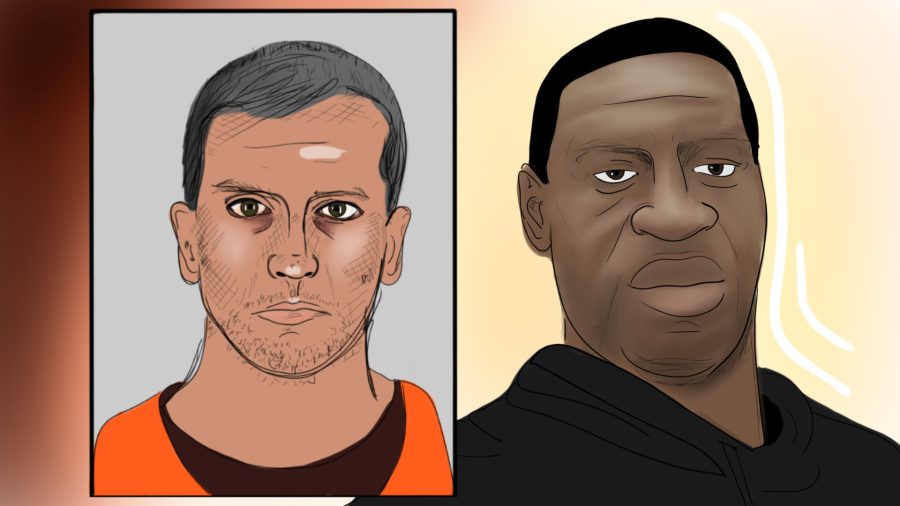On Monday, March 29, the trial of Derek Chauvin for the murder of George Floyd began. Here is a guide to what you need to know regarding this trial as it continues to progress.
Background
Derek Chauvin is a white, former Minneapolis police officer whose actions on May 25, 2020, sparked outrage throughout the nation.
On May 25, 2020, George Floyd, a black man, was arrested and handcuffed by Chauvin and three other former officers after allegedly refusing to pay after he attempted to use a counterfeit $20 bill at a corner store in Minneapolis.
Chauvin pressed his knee on Floyd’s neck while he was handcuffed and on the ground for about nine minutes. Floyd told the officers that he could not breathe more than 20 times during the interaction. Floyd died later that day in police custody. A video released of Chauvin with his knee on Floyd’s neck went viral.
On May 29, 2020, Chauvin was arrested and charged with the murder of George Floyd.
The Charges
Chauvin faces three charges for the murder of George Floyd in this trial. One for second-degree unintentional murder, one for third-degree murder, and one for second-degree manslaughter.
The charge of second-degree murder carries a penalty of up to 40 years in prison. Third-degree murder is punishable by up to 25 years in prison, while second-degree manslaughter holds a maximum sentence of 10 years.
The third-degree murder charge was originally dismissed by Hennepin County District Court Judge Peter Cahill, however, Judge Cahill later reestablished the charge following the Minnesota Court of Appeals request that he reconsider.
The Judge and the Jury
Judge Peter Cahill was appointed in 2007, had his own law practice, and worked for roughly 10 years in the Hennepin County Attorney’s Office.
Nine of the jurors are women, while six are men. Nine jurors are white, and six identify as black or multi-racial. This jury includes alternates, and according to CBC, “is considered unusually diverse by local standards.”
The Defense
Eric Nelson of Halberg Criminal Defense is representing Chauvin. Chauvin’s legal fees are being covered by the Minnesota Police and Peace Officers Association.
According to CBC, Nelson will likely look to the autopsies for his defense. He is likely to argue that Floyd’s death was a result of an underlying health condition and drug use, rather than the force placed on his neck by Chauvin.
The Prosecution
The prosecution for any cases regarding Floyd’s death was appointed by Minnesota Governor Tim Walz just days after the original incident. State Attorney General Keith Ellison was appointed to lead the prosecution, however Assistant Attorney General Matthew Frank—head of Minnesota’s criminal division—has dealt with more of the case.
The Trial
The trial began with opening statements and video footage of Chauvin kneeling on Floyd’s neck. Within the first three days of the trial, 11 witnesses of Floyd’s death testified—many very emotionally.
Witnesses included a firefighter, a 911 dispatcher, the teenager who recorded the video of Chauvin kneeling on Floyd’s neck that went viral and sparked protests across the nation, and more.
On Thursday, April 1, the jury heard from Floyd’s former girlfriend, Courteney Ross. Ross spoke about her relationship with Floyd, and the couples’ struggles with opioid addiction.
Later in the day, a paramedic who was at the scene, Seth Zachary Bravinder, told the courtroom that “when he arrived at the scene, he could tell from a distance that Floyd wasn’t breathing,” and that Floyd had “flatlined” in the ambulance on the way to the hospital, according to CNN.
Another paramedic, Derek Smith, testified that day as well. When Smith was asked to describe Floyd’s condition when he approached the scene, the paramedic said: “In lay terms, I thought he was dead.”
Despite all of this information, the trial is far from over. According to NPR, the trial of Derek Chauvin for the murder of George Floyd is expected to last about four weeks.

